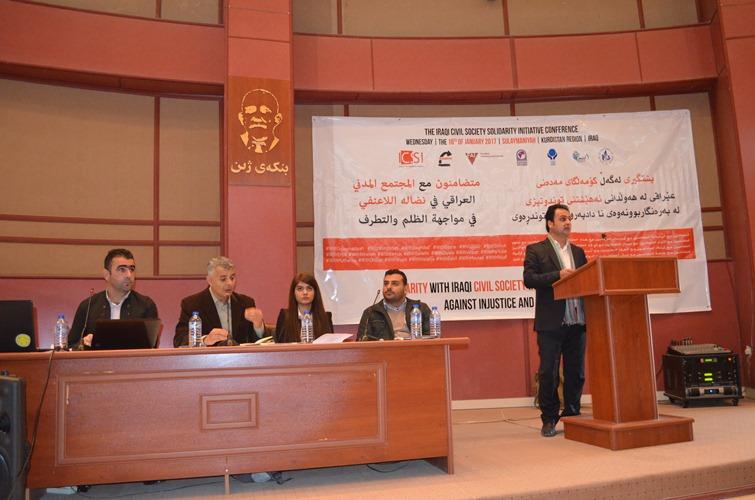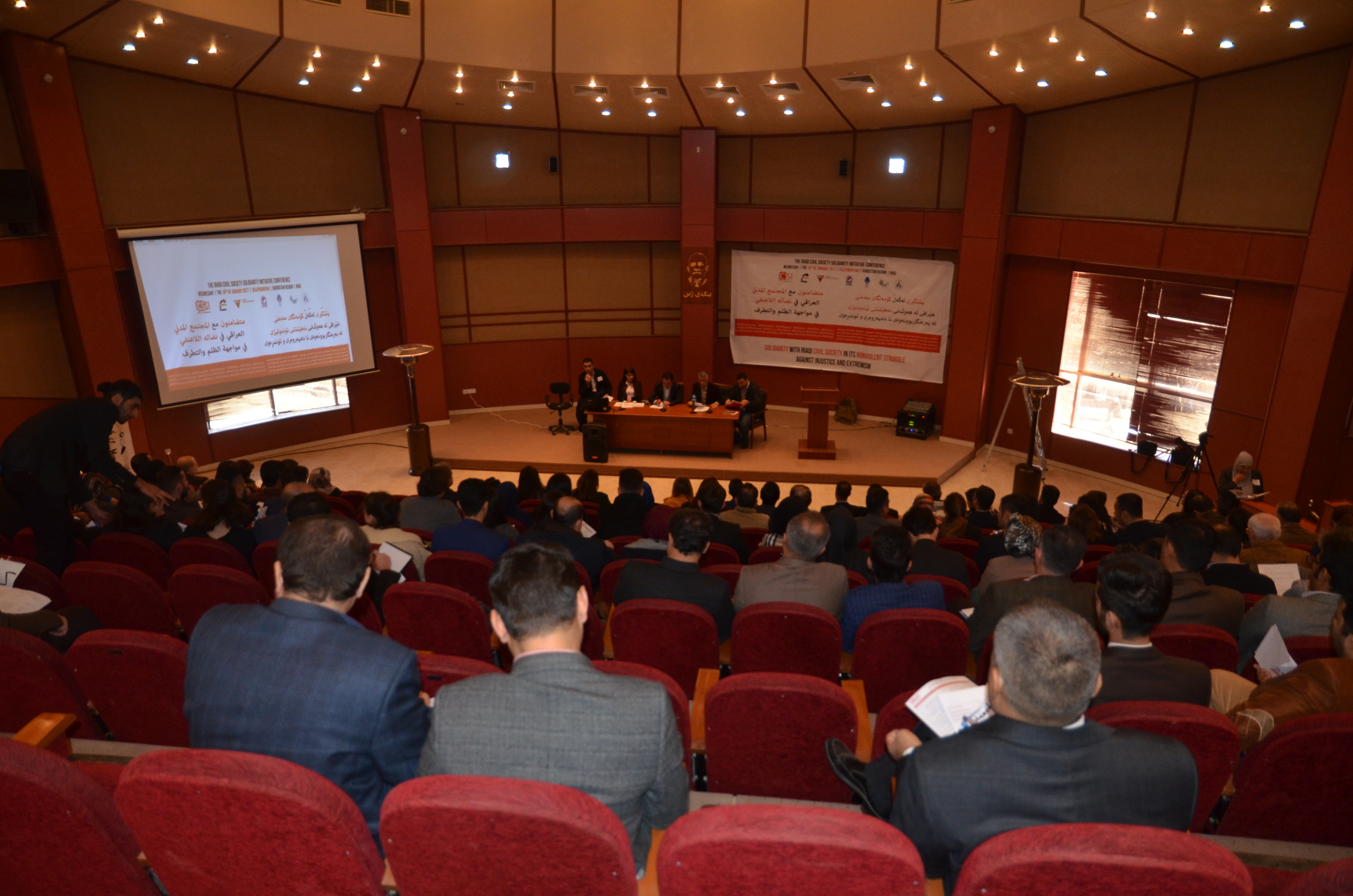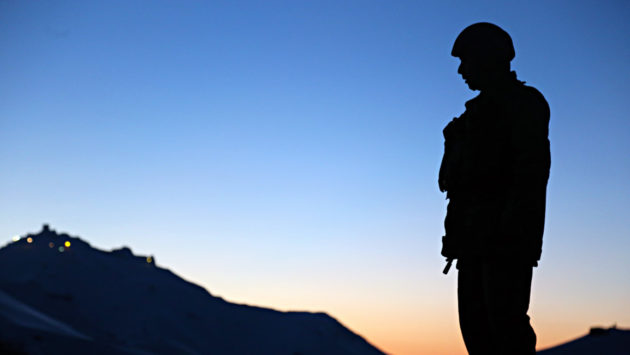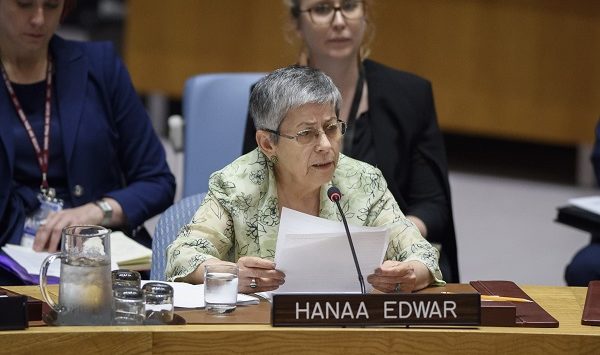Lessons from Sulaymaniyah on International Solidarity

بەر دەستە بە زمانی کوردی
Ismaeel Dawood – Paper presented at the opening session of ICSSI Sixth Conference, Sulaymaniyah, Iraqi Kurdistan region
01/18/2017
Ladies and Gentlemen, Good morning,
I would like to start this speech on behalf of myself, and on behalf of ICSSI and all the attendees, with words of greetings and gratitude. I hope you can listen to this magnanimously, despite its length, as it is vital for to me to convey to you honestly and clearly why we, as ICSSI, have come to your city, as your guests and, importantly, as your students.
A greeting to our host city of Sulaymaniyah and its honorable people, a greeting to beloved Kurdistan, and to all those in the audience here with us today. I offer my greetings filled with respect and reverence, like those sent by the greatest Iraqi poet, Mohammed Mahdi Al-Jawaheri, in his 1964 poem, ”My heart to Kurdistan”:
I greet Kurdistan with my heart, with my word, what else can a person like me give
My blood, these are gifts of a person who loves
And, later in the same poem, he continues:
I greet the mountain, and the people of this mountain
Knowing who they are
I kiss the earth who receives the blood of your martyrs
I want also to express my profound gratitude to all those who have given their lives in nonviolent struggle in the history of Sulaymaniyah, Kurdistan and Iraq, and to those who have dedicated their lives to support freedom of thought and expression. I want to take this moment to salute to those innocent civilians whose blood was so senselessly shed under dictatorship or in war, as well as to those who have died as victims of Daesh. Let this be a tribute to the victims of Halabja, of Sinjar, of Spyker, of Iraq through its history. This is a tribute to those who sacrificed themselves to protect civilians, not with arms but with the force and strength of their hearts — a rare and awesome form of generosity. This is a tribute to those distinguished men and women of the security forces: Peshmerga heroes, the brave Army of Iraq, the volunteers of the south, to all those who have worked ceaselessly and faithfully in defense of civilians, homeland and human dignity.
And finally, greetings and much gratitude to the youth of Sulaymaniyah, the organizers of what is to come, and the owners of this conference venue.
This conference will discuss international solidarity, but in the great city of Sulaimaniya, we need not pretend that we are here to teach, that we have come here to give lessons in solidarity: we are here to learn. And we know that we can learn a lot from this city, both from exploring its present and looking back to its history.
We can learn from the great national symbol of Iraqi and Kurdish activists, Sherko Bekas, the son of Halabja and Sulaimaniya, himself also an activist and distinguished poet.
His father, Fayaq Bekas, was a highly praised political figure, and a well-known poet of the Kurds. An advocate for the freedom of women, he was inspired by Qasim Amin’s theses, and the poems of Rusafi, of Zahawi, and other poets of that era.
Sherko Bekas joined resistance factions in 1965, and wrote poems about the resistance and nationality. He was inspired by Kurdish and Arab poetry and by Palestinian poetry in particular. His participation in the Kurdish struggle developed in Sherko Bekas an acute sensitivity to the struggles of others, and he wrote a poem for solidarity with Palestine. Another poem mourns the death of the Palestinian poet Mahmoud Darwish, entitled “A moon died and was mourned by all the world” in which he writes:
Brother! Why you don’t get up?!
I am your guest; my name is «Sherko Bekas»
A Kurd, I do not have only the wind and a handful of poems
Although we did not meet, the poetry was our moon, so I came
Brother!
Why you do not get up for the guest?
I came from Halgurd
And I brought with me the moon of these mountains and the rheum
And the almond words of my poetry
Thus, so strong was the struggle that, though these great poets never met in reality, they nevertheless came together. Sherko Bekas never laid eyes on, he never embraced Mahmoud Darwish in all his life, but still they met in the world of struggle and resistance and solidarity.

We don’t learn solidarity only from poets, nor solely from intellectuals and elites: we learn it from everyday people, in the streets, at home, in schools and in hospitals. We are here to learn from you. Look how Sulaymaniyah, Dohuk, Erbil and Kirkuk, and countless other cities and villages, hosted — with open hearts and spontaneous generosity — thousands of refugees and internally displaced Arabs, Kurds, Yazidis, Christians, Assyrians, Iraq’s rainbow and Syria’s rainbow. Solidarity here and now means all people together. We must begin, as you have shown us, with hearts full of love, and we must remember what you have taught us through your actions: we can accommodate everyone. We are here to learn all of this.
The Iraqi Civil Society Solidarity Initiative is concerned with solidarity, and we have held conferences on this theme for almost eight consecutive years. Our first conference was in 2009 in Feltre – Italy, in Paris in 2010, and in Erbil, the capital of the Kurdistan region of Iraq in 2011, in Basra in 2012, and in Oslo – Norway in 2014. Today we are here in Sulaymaniyah to hold our conference under the slogan “Solidarity with Iraqi civil society in its nonviolent struggle against injustice and extremism”.
At the beginning of my speech I talked about solidarity, now let me focus for two minutes on two other terms that are no less important than solidarity: non-violence and civil society.
To us, civil society embodies all public activities that occur within the civic framework. This does means not only non-governmental organizations, but also includes trade unions, federations, informal social networks and volunteering youth groups. Many actors seek to promote the values of coexistence, human rights and freedom, and many adopt nonviolent methods in their daily struggle. The term ‘nonviolence’ for us means framing a struggle in a way that most effectively brings about enduring social and political change. While we cannot dictate that nonviolence is the only way, we insist that civil society has a greater stake than others in the development of non-violent methods. This is because the change we seek is not short-term, nor shortsighted, rather it is manifested in a continuous struggle, regardless of who governs today or who will govern tomorrow. Nonviolence is our responsibility: it is the duty that acts as a compliment to human rights and a better life for all. So in the coming hours you will see us focusing on nonviolent struggle, civil society and solidarity. As we go, we will try to learn from you, so that we understand better what our role might be in collaborating with you in your non-violent struggle. We are here to stand in solidarity with you, for human dignity, for peaceful coexistence and human rights.
Thank you for accepting our request to host our conference, the conference of the Iraqi civil society solidarity initiative!
Wishing the success for you and for us




